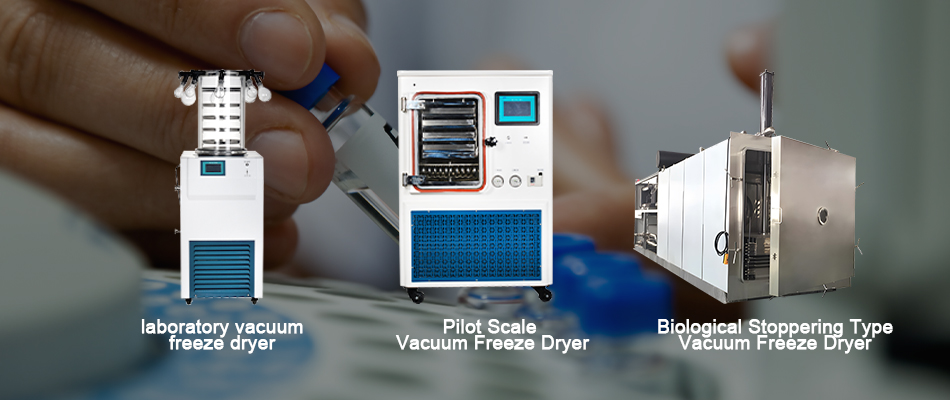Recently, a groundbreaking study on new vaccine freeze-drying technology has garnered widespread attention, with vacuum freeze-dryers playing a crucial role as key equipment. The successful application of this technology further demonstrates the irreplaceable value of vacuum freeze-dryers in the bio-pharmaceutical field. For institutions dedicated to vaccine research, bio-product production, and drug stability studies, selecting an appropriate vacuum freeze-dryer is especially important.
Vacuum freeze-drying technology allows bio-products, such as vaccines, antibodies, and protein-based drugs, to transition from solid to gas in a low-temperature, high-vacuum environment, effectively removing moisture. This process avoids the damage to bio-active components that can occur with traditional drying methods. For example, a large vaccine production company used a vacuum freeze-dryer to process influenza vaccines, showing that the stability of freeze-dried vaccines at room temperature increased threefold, extending their shelf life to over three years, greatly facilitating storage and transportation.
BOTH vacuum freeze-dryers utilize freeze-drying technology to maintain the activity of bio-products and are widely applied in drug formulation manufacturing, vaccine production, and long-term storage of biological samples.
In the pharmaceutical industry, freeze-drying technology effectively enhances the stability of active pharmaceutical ingredients and prolongs their shelf life. A study on freeze-dried insulin showed that the activity retention rate reached 98% after freeze-drying, compared to only 85% with traditional freezing methods. This not only ensures the efficacy of the medication but also reduces losses during storage.
In the field of cell and tissue engineering, vacuum freeze-dryers also demonstrate significant capabilities. They assist in preparing structurally intact biological scaffolds, such as collagen scaffolds used for skin regeneration. The micro-porous structure formed during the freeze-drying process facilitates cell adhesion and growth. Experimental data indicate that the cell adhesion rate of freeze-dried scaffolds is 20% higher than that of non-freeze-dried scaffolds, promoting the clinical application of tissue engineering products.
With their broad applications and significant advantages in the bio-pharmaceutical field, vacuum freeze-dryers have become essential tools for driving industry development. For institutions pursuing efficient, stable, and safe bio-product production and research, “BOTH” vacuum freeze-dryers offer various specifications and technical parameters that can be customized to meet the demands of the bio-pharmaceutical sector.
If you are interested in our skincare Freeze Dryer or have any questions, please feel free to contact us. As a professional manufacturer of freeze dryers, we offer a wide range of specifications including home, laboratory, pilot and production models. Whether you need household equipment or large industrial equipment, we can provide you with the best quality products and services.

Post time: Nov-01-2024






